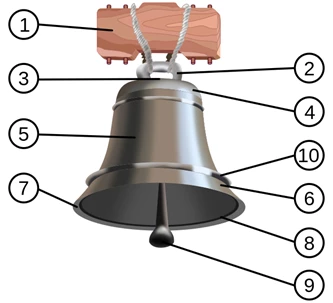 You may not have used the Mental Status Exam (MSE) as a social worker. You may not have encountered much about it at school. But there's lots on it worth knowing as you prepare for the ASWB (and a social work career). Here are some of the essentials.
You may not have used the Mental Status Exam (MSE) as a social worker. You may not have encountered much about it at school. But there's lots on it worth knowing as you prepare for the ASWB (and a social work career). Here are some of the essentials.
The MSE is a structured assessment used by social workers and other mental health professionals to evaluate a person's cognitive, emotional, and psychological functioning. Here are some of the key areas assessed:
-
Appearance: Describes the person's physical presentation, clothing, grooming, and any noteworthy features.
-
Behavior: Observations regarding the individual's demeanor, movements, gestures, and posture.
-
Mood: The prevailing emotional state at the time of the examination (e.g., sad, happy, anxious).
-
Affect: Refers to the emotional expression displayed during the evaluation (e.g., flat, blunted, labile).
-
Thought Process: Assesses the organization, coherence, and flow of the person's thoughts (e.g., logical, tangential, flight of ideas).
-
Thought Content: Examines the specific content of thoughts, including delusions, hallucinations, obsessions, or suicidal ideation.
-
Perceptions: Evaluates the presence of sensory experiences like hallucinations (e.g., auditory, visual).
-
Cognitive Functioning: Assesses cognitive abilities, including memory, attention, concentration, and orientation (e.g., time, place, person).
-
Insight: Measures the individual's awareness and understanding of their own mental health condition.
-
Judgment: Evaluates the person's ability to make sound decisions and solve problems.
-
Impulse Control: Assesses the individual's capacity to manage and control impulsive behaviors.
-
Speech and Language: Examines the clarity, rate, and content of speech, as well as language comprehension and production.
-
Sensorium: Determines the person's level of consciousness and awareness of their surroundings.
-
Psychomotor Activity: Describes the person's level of physical activity, which may range from agitation to psychomotor retardation.
-
Memory: Assesses both short-term and long-term memory recall.
-
Abstraction: Evaluates the person's ability to think abstractly and understand metaphors or proverbs.
-
Insight: Assesses the individual's understanding of their mental health condition and the need for treatment.
The MSE has a good amount of specialized vocabulary. Here are some terms worth familiarizing yourself with (or reviewing):
-
Anhedonia: The inability to experience pleasure or interest in previously enjoyable activities.
-
Echolalia: The repetition of words or phrases spoken by others, often seen in certain psychiatric conditions.
-
Loose Associations: A thought disorder characterized by a lack of logical connections between thoughts and ideas.
-
Neologism: The creation of new words or phrases that have no recognized meaning, often seen in severe mental illness.
-
Perseveration: The repetition of a particular response or behavior, even when it is no longer appropriate.
-
Alexithymia: Difficulty identifying and expressing one's own emotions.
-
Derealization: A feeling that one's surroundings are unreal or unfamiliar, often seen in dissociative disorders.
-
Depersonalization: A sense of detachment or feeling as if one is outside of their own body, also often associated with dissociative disorders.
-
Tangential Thinking: A thought process that goes off on unrelated or irrelevant tangents.
-
Circumstantial Thinking: A thought process characterized by excessive and unnecessary detail before eventually reaching the main point.
-
Flight of Ideas: Rapid, often disjointed, thinking where thoughts move quickly from one topic to another.
-
Glabellar Reflex: A neurological reflex where the person continues to blink when tapped on the forehead.
-
Word Salad: Incoherent, disorganized speech that lacks meaningful connections between words and phrases.
-
Dissociation: A disconnection between various aspects of consciousness, memory, identity, or perception.
-
Alogia: Poverty of speech, where the person speaks very little or provides minimal information in their responses.
-
Circumlocution: Using excessive words or indirect language to express a simple idea.
-
Clang Associations: A thought disorder where words are chosen based on sound or rhyming rather than meaning.
-
Concrete Thinking: A cognitive style characterized by literal, non-abstract thinking.
Got it? Great. Here's a practice question to test out your MSE knowledge:
During a mental status examination, a client says, "I'm feeling fine, like a lime dime, what's the time?" He frequently uses rhyming strings which lack meaningful connections. This phenomenon is known as:
A) Echolalia
B) Clanging
C) Neologism
D) Loose association
What's your answer?
Here's the correct one: the client is displaying "clanging" in their speech. Clanging is characterized by the use of words or phrases based on sound associations, such as rhyming or alliteration, rather than logical or meaningful connections.
You're that much closer to social work licensing exam success.
Dig in with full-length practice tests and boosters from SWTP. You'll be glad you did.
Happy studying and good luck on the exam!
September 1, 2023
Categories :

 You may not have used the Mental Status Exam (MSE) as a social worker. You may not have encountered much about it at school. But there's lots on it worth knowing as you prepare for the ASWB (and a social work career). Here are some of the essentials.
You may not have used the Mental Status Exam (MSE) as a social worker. You may not have encountered much about it at school. But there's lots on it worth knowing as you prepare for the ASWB (and a social work career). Here are some of the essentials.